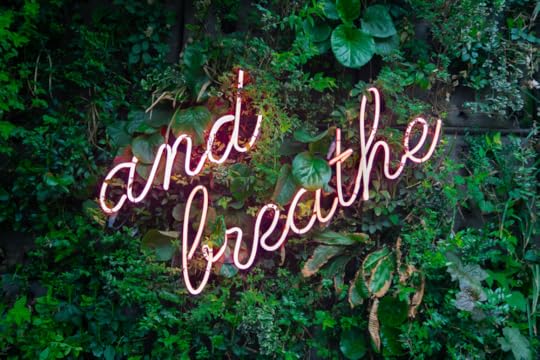Suzanne Alyssa Andrew's Blog: The PROCESS blog, page 3
July 4, 2023
Your Writing Isn't as Boring as You Think!

Hello illustrious and dedicated one!
Want to know one of the most consistent and deep fears writers have confessed to me in classes and coaching sessions? It’s this:
I’m afraid what I wrote is boring!
Sometimes what writers actually mean is, “I’m bored of this writing project I’ve been revising forever.”
I know this well because in the final round of edits on my first novel, my super smart editor saved me from making a drastic, and unnecessary, cut to the first chapter. And that chapter went on to become one of the most beloved and discussed sections of the book. I had solved the problems in it and perceived it as boring, but it wasn’t boring to readers experiencing it for the first time.
So, the first creative solution to the “is it boring?” conundrum is to get reader feedback. Perspective on your story from outside the realm of your own imagination is valuable!
The second creative solution is to look at where your writing can be more daring, and throw in some action, drama or humour. Maybe your character gets something wrong. Maybe you veer off outline for a scene and see what else can happen that’s fun, fast or furious.
When you entertain yourself with your writing that energy will energize your readers, too. You’re creating fun and sharing it, which is as noble a task as any, especially when you’re conveying something meaningful along the way.
That’s how I wrote my art heist story, “The Collectors,” which was published by Taddle Creek. I set out with a situation: two thieves want to liberate a painting. Then I gave them twists and surprises, keeping the characters in motion to the end. Read the story and see if you find it as entertaining to read as I did writing it!
If you’re wrestling with the “is it boring?” conundrum on a writing project and need perspective, get in touch now.
Yours in action! Drama! Humour! (And valuable perspective!)
Suzannexo
May 18, 2023
Befriend Your Inner Critic

Hello lovely!
Have you ever had a stellar writing session where words are flowing and everything feels good—only to look at what you wrote the next day and have all kinds of negative (or even harsh!) thoughts about it?
How can the same piece of writing go from inspired to insipid dreck overnight without changing a thing?
Often times, just when things are going well, our inner critics pop up. The inner critic is a voice in your head, an instinct, or sometimes a habit or learned behaviour that tries to keep you safe. They love to point out risks and vulnerability, and sometimes that does save us from potential embarrassment. It’s just that for many writers our inner critics are on blast, shouting over our dreams, and interrupting our writing! Rude!
Sure, all writing can be edited. No draft is ever perfect. But our purpose as writers is to keep telling stories the best ways we know how. To keep learning and trying, tinkering and experimenting.
I believe your writing deserves to be visible and read. You’re reading this because you have something to say. So let me show you ways your inner critic might be draining your creative energy away!
Find out how you can notice when your inner critic shows up and begin to befriend it, by taking my Inner Critic Quiz. It might make the difference between a draft that stalls out and a finished one. It might enable you to take your ideas further.

April 21, 2023
A Dose of Writing Courage

My friends,
It takes courage to be a stand-out vivid and daring writer because we need to take risks, be vulnerable, and keep going despite challenges and rejection.
I define courage as taking the action, best aligned with your integrity, that you would in the absence of fear. One of the best resources I’ve read on this is the book Integrity by Martha Beck (you know it’s good when it’s blurbed by Elizabeth Gilbert!).
Writing in the absence of fear might look like:
· Writing about something you’ve never told anyone before
· Asking your inner critic to pipe down while you write
· Taking an idea further than you ever thought possible
· Delving deeper into meaning, complexity and emotion
· Writing truths without worrying what people will think
· Showing your writing to first readers
· Being open to feedback you know will make your writing clearer
· Taking the time to think your story ideas through and edit carefully
· Submitting your best work
· Knowing rejection is something to learn from
· Asking for help and perspective when you’re not sure what a story needs next
Writing with courage is about persevering, speaking from your wisdom and integrity, and standing up to injustice. And we’re most courageous when we remember we’re in this together, as a community of writers and readers.
I’m always here to encourage you,
Suzannexo
March 17, 2023
Love Your Writing

This blog post is a romantic comedy starring you, and your meet cute is your next book, novel or story.
It goes something like this:
You drop a cup of coffee, distracted and frazzled.
As you mop it up, an idea inkling pops into your head.
Your eyes soften. What if?
Now if at that point you usually think, “nah,” and carry on (swipe left). Or scribble onto a notecard that you later lose (ghost). Or start writing and let it fizzle out, unfinished on the page, as something to return to at a vague unspecified date in the future (bench). Or, worst case reject it and delete it (unmatch). Well then, I urge you to let yourself fall in love instead.
When you love your book, story or novel-in-progress you:
· Think about it all the time
· Look at it with pride and admiration
· See it for its potential
· Reach for it often (author Ian Williams says to touch your MS every day)
· Enjoy an initial rush of exhilaration as you get to know it
· Listen to its secrets
· Let yourself be vulnerable with it
· Let it surprise you, and sometimes tease you
· Embrace it with multiple editing hugs
· Encourage it to grow and evolve
· Stick by its side, even when things get rocky
· Stand up for it and protect it
· Talk about it in glowing terms
· Want the best for it
· Stay devoted to it and see it through
When I teach and coach writers something I say a lot is “keep going with this!” Maybe what I’m really saying is this story’s a catch worth investing your time and energy in. Writing is a long-term relationship with ideas! And when you put it that way, your affection for your work always matters. It makes every effort worth it. It grows and changes you. Love and devotion to your writing are what evolve you as a writer.
Suzannexo
February 23, 2023
Make Time to Write

Here’s a conundrum to ponder: will there ever be a less busy time in your life to write your book? What if I were to tell you that you DO have time to write your book, even when things are hectic?
Here’s a secret: no one has time to write a book. AND STILL, books are published every day!
That’s because published authors decide to write a book and then make time in their busy schedules to write. You can write your book with 20 minutes a day, or two hours every morning. Some authors write on weekends. Some get up early to write, and some are night owls writing when everyone else is sleeping. Author Cheryl Strayed loves writing in bursts, often booking herself into hotels for two or four days of intense productivity at a time. Almost any configuration of hours spent can work.
My point is that to write a book you have to take ACTION.
It’s not going to magically happen. The book writing process is more like training for a marathon than it is about waiting for inspiration, or any one perfect moment. The ideal time to write a book is now (and again tomorrow, and the days after that). Inspiration and motivation show up within a habitual and regular writing practice. Once you make writing a habit, inspiration and motivation will know when and where to find you!
Get my Make Time to Write Guide
I’ve created a complimentary guide for you! It shows you how to create a writing practice that works for you and your life, so you can see your book through to completion. You’ll also identify your unique power hours, and create a writing schedule to follow. As your book coach what I want for you is the triumph of finishing your manuscript. Let’s set you up for success! Download the Make Time to Write Guide
XOXO S
Create From Your Future Self

What advice would your IDEAL future self give to you right now?
I recently attended a retreat to learn about how to teach and coach using visioning techniques. I love that visualizing success is backed by science as effective. I’ve also gathered plenty of anecdotal evidence for it from when I used to interview artists, authors and luminaries in my journalism practice. (Skating Olympiads Tessa Virtue and Scott Moir told me they worked with sports psychologists to visualize winning gold).
There’s a secret to it that’s especially effective for writers that I’ll share with you: make it more than idle fantasy. Make it active. So instead of navigating your writing practice from the past, what would happen if you embody future you?
This is a new way to move beyond mistakes, bad habits and worn out patterns!
Let me give you an example! Think of a bad writing habit or pattern, like avoiding your writing, procrastinating, letting rejections get to you, or starting but not finishing projects. Beating yourself up about your bad habit or trying to fix it using an old frustration story (ie. “why can’t I ever x?”) can keep you stuck in a loop.
Writing from your ideal future self instead encourages the best of you to lead. Your best writer self tells a new story—one where you prioritize your writing, finish drafts, make progress, learn from rejection, and ask for writing support when you need it!
Who is your ideal future self and how does their writing practice look and feel?
Want help goal setting or visualizing writing success?
Book a coaching session with me and I’ll talk you through it. I’m also happy to follow up with you in a month or two to keep you accountable! Let’s set you up for a prolific writing year! XOXO S
February 22, 2023
Writing From a State of Calm

I’ve never suffered from writer’s block per se, because I’ve never experienced a shortage of ideas, but when I tried to begin my second novel, the process kept getting stuck. I’d get to page 80, feel frantic and start from the beginning again. The manuscript needed to be in a different tense, and a different point of view. I wrote in first person, second person, third and nothing felt comfortable or good enough. I couldn’t seem to get into the groove of the story I wanted to tell.
Then at the end of last year, a perfect culmination of life events, including a parent in ill health, led me back home to the province where I grew up. I sold my place in downtown Toronto, packed up my books, and moved 4,000 kilometres, landing in Vancouver.
Instead of a view of a nondescript courtyard and the giant condo tower across the way, I began waking up to the coastal mountains and two tall pine trees, an expanse of moody sky and fresh air with a hint of sea salt in it. I took time off, went for walks, slept a great deal, watched movies and read voraciously. In time I realized my nervous system was calming down.
In my newly relaxed state, I was able to release my grip on what had been holding me back: a fretful clutch of expectations, competition and other pressures of my own invention. In other words, I had created so many stories about the story I was trying to write, I’d made it impossible to hear and tell the actual story.
Free of all that I began to write. All the initial problems with the manuscript were solved in this new state of calm. I didn’t feel like I was fighting it anymore. I embraced it, and became so engaged in the story that emerged, I flew past page eighty and am nearly done the draft.
This is not to say that moving is the solution to getting your writing unstuck! It’s about finding a way, no matter where you are, to tune into your inner world and hear the story. I was able to write my first novel in the noise and energy of the city, and needed something different for this new project.
That something was kindness. The disruption in my life was an invitation to approach writing in a new way that’s gentler and more caring than the push-force of my past writing life. My writing is better, and I’m more prolific for it. The story is flowing again, and that’s the loveliest gift.
Here are some kindnesses I’ve started incorporating into my writing practice every day:
Warmth: To counteract the physical discomforts of writing I microwave a beanbag at the end of the day and place it on my shoulders, neck and wrists. Comforting your body helps make a daily writing practice sustainable.
Beauty: Writing is nourished by inspiration from nature, whether it’s a walk through the trees or simply appreciating the presence of a flower, houseplant or cool breeze.
Nourishment: My writing practice is fed by inspiring music and the company of supportive friends. Find elements you can bring into your practice that feel like fuel.
Listening: My writing suffered when I focused on all the pressures I perceived around writing and thrived when I was able to simply tune-in to the story itself.
Honouring: Some days I move my word count forward by leaps, and other days I re-write what I wrote the day before. When I honour my writing practice for what it is, instead of judging, it thrives.
Stay calm! (Ask me how in a coaching session!) XOXO S
(Note: I originally published this as a guest article for Sarah Selecky's Writing School newsletter in 2019.)
Burnout prevention for artists, musicians and writers

To succeed we’re often told we need to be driven. Sometimes that feels like we have to do everything right now. But a sustainable career in the arts is a marathon, not a sprint. A willingness to take the long-view means remembering you’re human and have real limits. It’s crucial to take care of yourself by setting boundaries around your creative time and what your body needs. Your boundaries take care of you.
We’ve all seen what can happen when an artist burns out. Bright stars like Avicii and Amy Winehouse flame out, their careers cut tragically short. Yet not all forms of burnout are so dramatic. You might be feeling its subtler effects if your work feels lacklustre or boring, if you’re stuck on a project and missing deadlines, or if you’re irritable with your collaborators. Sometimes it shows up in our bodies as muscle or joint pain, digestive difficulties, headaches, restless sleep, and in our brains as anxiety, stress and bad or sad moods.
The more driven you are, the more counterintuitive it can feel to recognize you need a break. But the biggest creative secret is that sometimes our best, most inspired ideas arrive as if by magic when we’re at rest—in the shower, walking the dog, riding a bike, attending a friend’s concert or sitting in a park. When we free our brains from pressure to perform, they often gift us by problem-solving in the background.
Get curious the next time something isn’t working or feels off. Are you feeling stalled or impatient because you need a break? Taking ten minutes to go for a walk may be exactly what you need. Here are some effective burnout prevention techniques you can incorporate into your artistic practice to keep you going for years:
Picture the creative work life as a wave.
Working towards a big deadline or show can be full-on. If you’re productive and in the zone, this can be healthy while you’re riding the wave. But once you’ve done it, give yourself a chance to recharge before you hop onto the next.
Don’t leave it to the last minute.
Create a work-back schedule of everything you need to do to make your deadline or be ready for an event. Write down when you’re going to do each step and ask yourself, is this realistic? Is there anything you can delegate or get help with? For me, having achievable daily writing quotas means I know when I can stop in the evening and feel good about my efforts.
Take play breaks.
Re-energize in the studio by dancing to a favourite song, rolling on the floor to stretch your back, cooking a meal, going outside or even staring out the window. When you return to what you were working on you might see something new.
Don’t chase after things that aren’t meaningful or drain you.
When you check in with yourself you’ll know what feels worthwhile and what doesn’t. Honour that! To protect your creative time and energy learn to say no. Choose your promotion opportunities wisely. If you know you’re going to be stretched that week say no. If an event doesn’t fit what you do say no. If you just met a deadline and need a break, say no.
Be content with your own timeline.
Sometimes a little competition can be a good motivator. Other times it can lead to unhealthy self-judgement. Don’t beat yourself up! All you need to worry about is your own efforts. Let everyone else walk their own paths in their own time.
Get support.
Talking it out always helps. We all need validation, direction and encouragement. Checking in with a mentor is a good way to find perspective on when to push and when to slow down. In that balance is the space where you can thrive.
Stay calm! Get book coaching with me! XOXO S
(Note: I originally published this as a guest post on the Mentorly blog in 2019.)
The Process Blog Archives

For years The Process was a Tumblr where I posted about my writing process, news and events. As of 2023, I'm now providing helpful writing information and advice for my book coaching clients, too, in this space. Thanks for finding me! Random music reference: I Am Easy to Find is an excellent (and heartbreaking!) song by The National. I recommend it!
If you're new around here and want to step into the Process Blog Archives, you'll find them here.
But watch out for cobwebs! XOXO S
September 15, 2022
September’s Writing Boost: Possibility
September energy is here! In the latest issue of my newsletter I show you ways to harness it on the page and reinvigorate your writing projects.

The PROCESS blog
- Suzanne Alyssa Andrew's profile
- 21 followers



